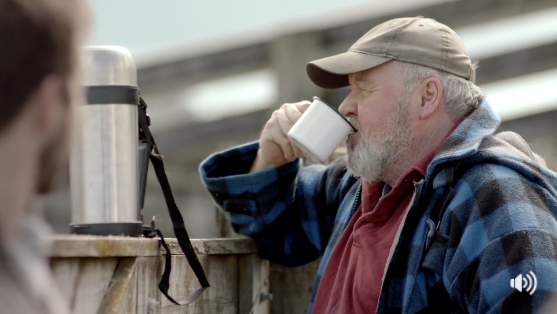"If It's Not Gay, It's Not Gay
The video was the brainchild of Rainbow Youth, a New Zealand organization for LGBTIQ youth. The Auckland-based group has been around since 1989, but this is the first time its embarked on a national ad campaign.
The ad, which is about not using the word "gay" as a pejorative, is running on national TV, and if the traction online is anything to go by, it's been a big success.
In it, a man named Nigel drops his pie and declares "gay", only to be told by a mate that it's not the right word for a dropped pie.
"It's deeply disappointing, but it's not gay," Nigel's mate says. "Look bro. Unless that pie is a man that loves another man, it's not gay."

Rainbow Youth
The plot takes a turn very typical to New Zealand when another man called Muzza walks past holding a sheep, to point out two women in a relationship can be called gay too.
Then it's revealed a fourth man named Steve is gay, much to Nigel's disbelief. But Steve confirms it – "quite gay" – and then literally sips some tea.
It ends with a shot of the dropped pie and the phrase "If it's not gay, it's not gay".
Comments on the video were largely positive, including a specific appreciation for the line "It's deeply disappointing, but it's not gay".
Executive director Frances Arns told BuzzFeed News that Rainbow Youth had been "overwhelmed" by the response to the advert.
"[We wanted to show] that positive, inclusive language is a really important way we can combat homophobia," she said.
Arns said Rainbow Youth worked with creative agency Y&R NZ and Eight TV studio to come up with the ad, funding it via a partnership with the MediaWorks Foundation.
The rural setting came from a desire to encourage these types of conversations in rural areas as well.
"The setting is relevant to many New Zealanders, and we wanted to make sure that the context resonated with a wide audience," Arns said.
"The ad also demonstrate s the way that people who use the word gay in the negative, will often be in the company of someone who might have an association with that word, either themselves or in their wider friends and whānau."

Comments